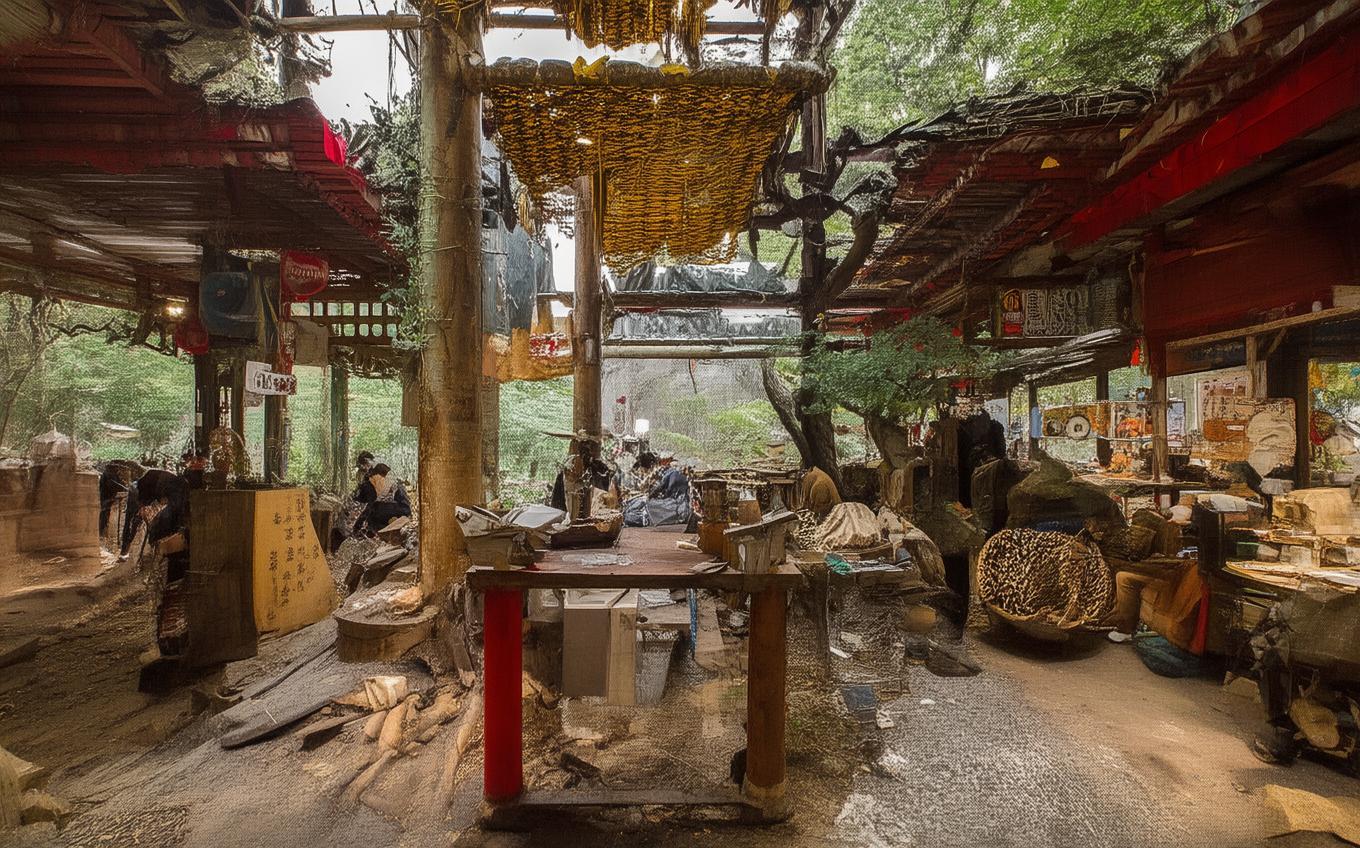Analysis of "贺新郎·读史" - Classical Chinese Poetry
Introduction
"贺新郎·读史" (Hè Xīnláng·Dú Shǐ, "Congratulations to the Bridegroom: On Reading History") is a famous ci (lyric poetry) written by Mao Zedong, the revolutionary leader and poet of modern China. While Mao is primarily known for his political role, his poetry blends classical Chinese literary traditions with revolutionary themes.
This poem reflects on China’s long history, from primitive societies to class struggles, and embodies Mao’s Marxist interpretation of historical progress. It is significant for its grand vision, philosophical depth, and unique fusion of classical form with modern ideology.
The Poem: Full Text and Translation
贺新郎·读史
Hè Xīnláng·Dú Shǐ
Congratulations to the Bridegroom: On Reading History
人猿相揖别。
Rén yuán xiāng yī bié.
Apes and men once bowed farewell to each other.
只几个石头磨过,小儿时节。
Zhǐ jǐ gè shítou mó guò, xiǎo'ér shíjié.
Just a few stones were polished—the childhood of mankind.
铜铁炉中翻火焰,
Tóng tiě lú zhōng fān huǒyàn,
In bronze and iron furnaces, flames leaped,
为问何时猜得?
Wèi wèn hé shí cāi dé?
But who could guess when this began?
不过几千寒热。
Bùguò jǐ qiān hán rè.
Only a few thousand winters and summers passed.
人世难逢开口笑,
Rénshì nán féng kāikǒu xiào,
In human life, rare are the times for open laughter,
上疆场彼此弯弓月。
Shàng jiāngchǎng bǐcǐ wān gōng yuè.
On battlefields, men bent bows like crescent moons at each other.
流遍了,郊原血。
Liú biàn le, jiāo yuán xuè.
Blood soaked the wilderness.
Line-by-Line Analysis
-
"Apes and men once bowed farewell to each other."
- This refers to the evolutionary transition from apes to humans, symbolizing the dawn of civilization. Mao blends Darwinism with historical materialism. -
"Just a few stones were polished—the childhood of mankind."
- The "polished stones" represent the Stone Age, humanity’s primitive beginnings. The metaphor of "childhood" suggests progress from simplicity to complexity. -
"In bronze and iron furnaces, flames leaped..."
- The Bronze and Iron Ages mark technological advancement, yet Mao questions when true historical awareness emerged. -
"In human life, rare are the times for open laughter..."
- A lament on the scarcity of peace in history. Most of human existence has been marked by conflict. -
"On battlefields, men bent bows like crescent moons..."
- The "crescent moon" imagery contrasts beauty with violence, emphasizing war’s tragic recurrence. -
"Blood soaked the wilderness."
- A stark conclusion: history is written in blood, a cycle of struggle Mao sought to transcend through revolution.
Themes and Symbolism
-
Historical Materialism
- The poem reflects Mao’s Marxist belief that history progresses through class struggle, from primitive tools to modern revolutions. -
The Futility of War
- The repeated imagery of bloodshed critiques humanity’s failure to achieve lasting peace. -
Progress vs. Cyclical Violence
- While technology advances ("stones" to "iron"), human conflict remains unchanged—a paradox Mao challenges.
Cultural Context
- Written in 1964, during China’s socialist construction, the poem merges classical ci form with revolutionary ideology.
- Mao’s use of historical allegory was meant to inspire the masses to break from oppressive cycles.
- The poem’s grand narrative aligns with traditional Chinese historiography, which often reflects on dynastic rises and falls.
Conclusion
"贺新郎·读史" is a powerful meditation on history’s brutality and the hope for revolutionary change. Mao’s blending of classical elegance with modern thought makes it unique in Chinese literature. Today, it invites reflection on whether humanity can escape its violent past—a question as relevant now as in Mao’s time.
For readers exploring Chinese poetry, this piece offers a bridge between ancient literary traditions and 20th-century ideological transformations. Its vivid imagery and philosophical depth ensure its enduring appeal.




Comments (0)
No comments yet. Be the first to comment!